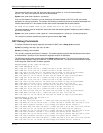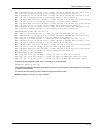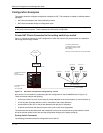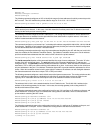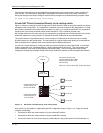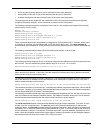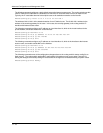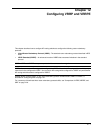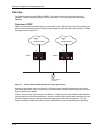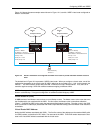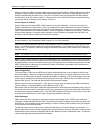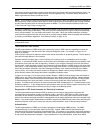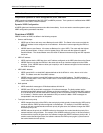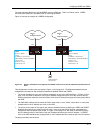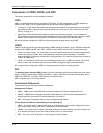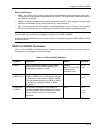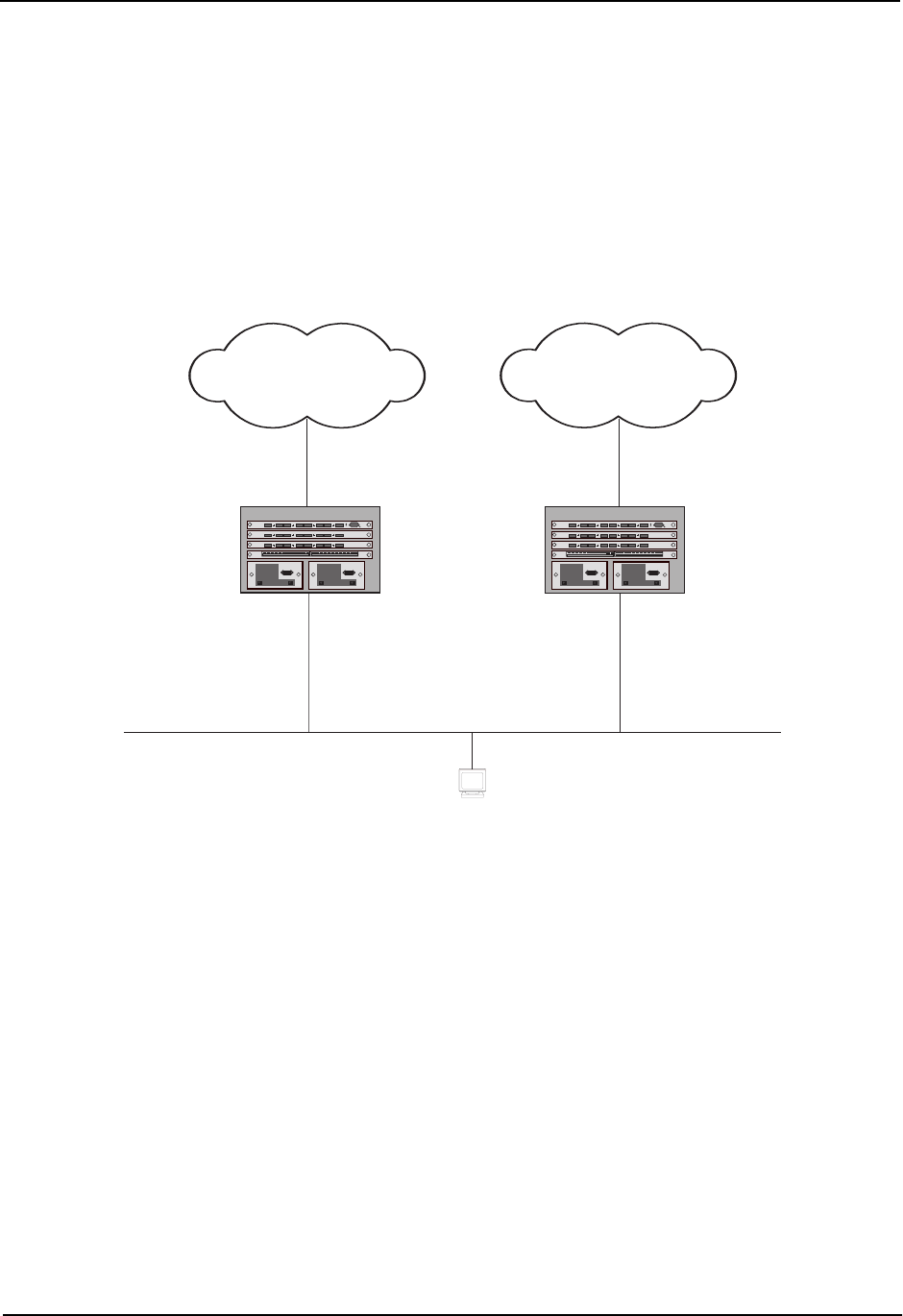
Advanced Configuration and Management Guide
Overview
The following sections describe VRRP and VRRPE. The protocols both provide redundant paths for IP
addresses. However, the protocols differ in a few important ways. For clarity, each protocol is described
separately.
Overview of VRRP
VRRP is a protocol that provides redundancy to routers within a LAN. VRRP allows you to provide alternate router
paths for a host without changing the IP address or MAC address by which the host knows its gateway. Consider
the situation shown in Figure 12.1.
Internet
or
enterprise Intranet
e 3/2
192.53.5.1
e 1/6
e 1/5
e 2/4
Internet
or
enterprise Intranet
Router1
Router2
Host1
Default Gateway
192.53.5.1
Figure 12.1 Router1 is Host1’s default gateway but is a single point of failure
As shown in this example, Host1 uses 192.53.5.1 on Router1 as the host’s default gateway out of the sub-net.
If this interface goes down, Host1 is cut off from the rest of the network. Router1 is thus a single point of failure for
Host1’s access to other networks.
If Router1 fails, you could configure Host1 to use Router2. Configuring one host with a different default gateway
might not require too much extra administration. However, consider a more realistic network with dozens or even
hundreds of hosts per sub-net; reconfiguring the default gateways for all the hosts is impractical. It is much
simpler to configure a VRRP virtual router on Router1 and Router2 to provide a redundant path for the host(s).
12 - 2



